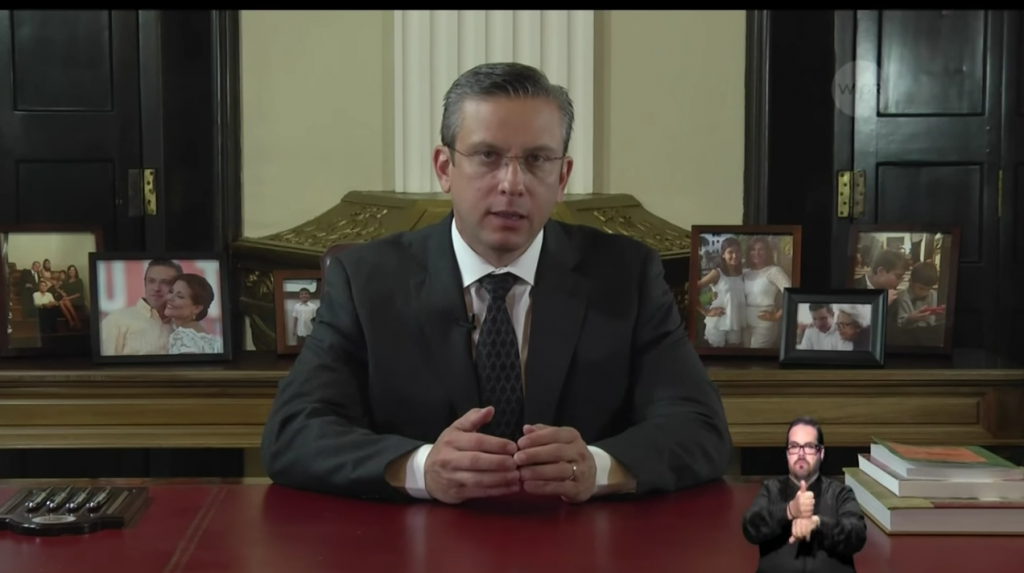-
Tips for becoming a good boxer - November 6, 2020
-
7 expert tips for making your hens night a memorable one - November 6, 2020
-
5 reasons to host your Christmas party on a cruise boat - November 6, 2020
-
What to do when you’re charged with a crime - November 6, 2020
-
Should you get one or multiple dogs? Here’s all you need to know - November 3, 2020
-
A Guide: How to Build Your Very Own Magic Mirror - February 14, 2019
-
Our Top Inspirational Baseball Stars - November 24, 2018
-
Five Tech Tools That Will Help You Turn Your Blog into a Business - November 24, 2018
-
How to Indulge on Vacation without Expanding Your Waist - November 9, 2018
-
5 Strategies for Businesses to Appeal to Today’s Increasingly Mobile-Crazed Customers - November 9, 2018
Thousands of Puerto Ricans leaving the island following financial crisis
In addition to skipping the nearly half-billion bond payments, the governor imposed a debt moratorium, so the island won’t put any more money toward its financial obligations, setting up potentially far-reaching defaults later this year. The governor is now asking the US congress to act on the agreement.
Advertisement
The island’s debt is held by mutual funds, hedge funds, bond insurers and individual investors, who were attracted in part by tax benefits and high yields.
According to USA Today, the island’s governor, Alejandro García Padilla addressed the Puerto Rican people on Sunday and said he had given the order not to make the payments that were owed. He added that the government could not make the payment without sacrificing basic necessities for the island’s 3.5 million residents, including keeping schools and public hospitals open.
The Government Development Bank on Monday said it tentatively rescheduled about $900 million of debt with a group of creditors willing to accept a 43.75 percent reduction in the face value of their bonds, and an exchange of their old bonds for new ones that won’t come due for some time. “Absent enactment of a workable framework for restructuring Puerto Rico’s debts, bondholders will experience a lengthy, disorderly, and chaotic unwinding, with non-payment for many a real possibility”. But so far the overall US bond market has not been negatively effected.
A plan to give Puerto Rico the power to restructure its debts was due to be settled at the end of March, but it has not yet been passed.
The missed payments at GDB will be the island’s biggest default yet. Its agencies maintain their bank accounts at the GDB, which serves as the government’s fiscal agent and financial adviser and backs loans to private enterprises, so the default could trigger litigation to freeze those accounts. “Without federal restructuring legislation, including the tools to bind non-consenting creditors, the transaction would be highly unlikely to reach the required participation levels”, the bank said in a statement.
The GDB said it reached indicative terms of a deal with the creditor group holding about a quarter of the almost $4 billion in bonds.
The default could also mark a turning point after weeks of negotiations on Capitol Hill. In his speech he blamed unnamed “opponents of the people of Puerto Rico”, who, he said, “have unleashed a brutal campaign of racial discrimination and lies against us”, convincing some members of Congress that Puerto Rico needed austerity rather than debt relief.
In November the island’s Government Department bank was found to be insolvent, and in April it was sued by a group of hedge funds which have called for its assets to be frozen.
Legislation that would allow the commonwealth to restructure its debt is now bogged down in the House, with some conservatives calling it a government bailout.
House Majority leader Kevin McCarthy, R-Calif., said last week he is “hopeful” to have a bill to address Puerto Rico pass by the July 1 payment deadline.
Puerto Rico has been in recession for almost a decade amid a steady exodus of Puerto Ricans to the United States mainland. Despite the shaky economy, investors snapped up its debt for years thanks to generous tax incentives. While many will eventually find jobs in the USA, their incomes will at least initially be low enough to qualify for Medicaid, food stamps and public housing.
Advertisement
Under U.S. Federal law, Puerto Rico is ineligible to file for Chapter 9 bankruptcy, which would allow them to negotiate with their creditors and restructure their debt. Yet, the island of Puerto Rico is being short-changed by their own government.





























